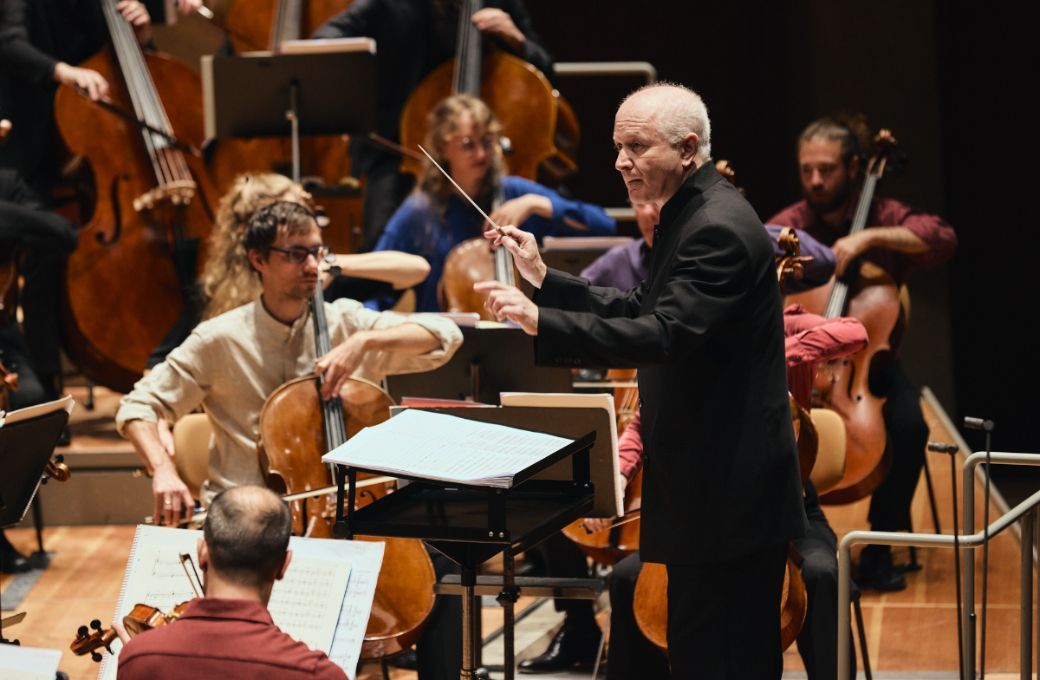In an early Simpsons episode, a flash-forward to the time that Lisa is in college – the year is 2010 – shows that real trees have been replaced by commemorative holograms. In 2023, we know now that this prediction is partially untrue, although the concerns which originate it are still very much alive. Rather than holographic trees, however, it is often through art that we look after nature, an entity of elusive definition. As an example, the Musikfest Berlin hosted composer and conductor Sir George Benjamin and Ensemble Modern to perform a programme of contemporary works inspired by the natural world. While not intentionally ecological, such choices highlighted the strong connection that – against all odds – persists today between composers and the environment.

Conceived as a concerto for orchestra, Unsuk Chin’s SPIRA owes its name to the Spira mirabilis, a spiral whose shape stays unchanged even as its size grows. The correspondence of big and small and the constancy of proportions evoke certain compositional strategies: the entire piece originates from a single germinating cell, played pianissimo on two bowed vibraphones. Almost impalpable, this sound is ever-present in the score, punctuating each section even when it risks being drowned by other tumultuous musical moments. Opening with SPIRA gave Benjamin the chance to showcase the calibre of the ensemble from the very start, thanks to the quality of Chin’s orchestration. The conductor steered the performance through the piece’s flutters and runs, transforming its abstract mathematical prompt into a tangible, fascinating acoustic reality.
Also featuring a quiet start, Cloudline by Elizabeth Ogonek suggests a sense of loose directionality, similar to that of clouds hurrying or dawdling in the sky. Its broad horizon is outlined by a viewpoint that seems to imply the presence of a spectator, whose eyes witness the cumuli moving incessantly. Taking the audience on this stroll in the sky, Benjamin highlighted the score's lyricism, the slow movements of the strings occasionally calling to mind a tradition of pensive, spacious adagios. Ideally kin to Bartók’s ‘night music’, Ogonek’s ‘cloud music’ is internally animated, its effervescent sound world duly rendered by Benjamin’s attention to detail.
At the centre came the world premiere of Francesco Filidei’s Cantico delle Creature, commissioned by the Musikfest. The text by Francis of Assisi is a direct address to God, in praise of his creation – a fitting development of the concert’s overarching themes. The clear tonal plan, based on a descending chromatic scale that ends where it began, gives the score a rationale which is strengthened by the communion of voice and orchestra. Benjamin took care of the percussive abundance of the piece, ironically antithetical to Francis’ vow of poverty; Cantico doesn’t flaunt its means, but rather uses them to recreate a sense of full, swarming life. Anna Prohaska sang the hymn with intensity, from a madrigal-like intimacy to a more operatic style of singing.
Prohaska’s quality as a sensitive performer – and Benjamin’s as a composer – was also made clear in the short work that followed, A Mind of Winter to a text by Wallace Stevens. In the bare winter, Prohaska’s soprano became one with the ensemble and the landscape.
The inspiration of nature is perhaps not readily detectable in the closing work, Dieter Ammann’s glut. Maintaining the ambiguity between two languages, the title alludes to both the German “ardour” and the English “excess”. However, Ammann’s overwhelmingly rhythmic score is reminiscent of formidable natural phenomena – eruptions or avalanches. Under Benjamin, this last tour de force demonstrated once again the dexterity of the Ensemble Modern, whose unity and fieriness provided a pyrotechnic finale.


